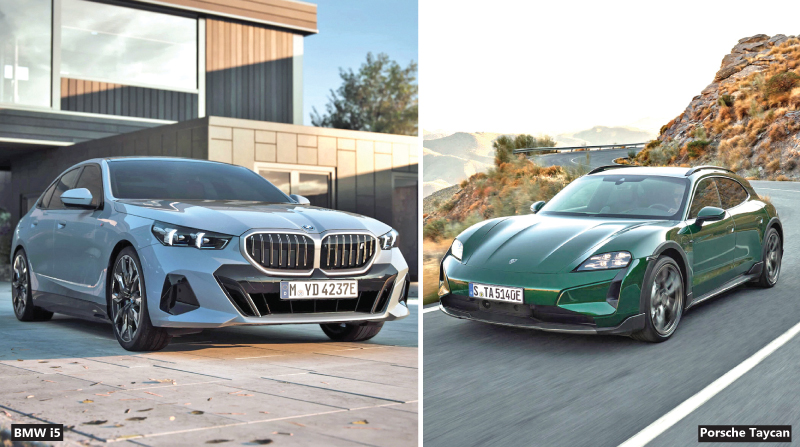The global Electric Vehicle (EV) market was valued at US$ 418.2 billion in 2024 and is expected to reach US$ 72,798 billion by 2050, growing at a CAGR (Compound Annual Growth Rate) of 21.99 percent during the forecast period 2025-2050, according to a latest report by the consulting firm Astute Analytica.
The electric vehicle market has undergone a seismic transformation in recent years, becoming a cornerstone of the global automotive industry. As of 2024, the sector is thriving, driven by technological innovation, shifting consumer preferences, and stringent environmental regulations.
The EV market is no longer a niche segment; it is now a mainstream force reshaping global transportation. With nearly one in five cars sold worldwide being electric in 2024, the industry has reached a significant milestone. This growth is fuelled by advancements in battery technology, government incentives, and a growing awareness of environmental issues. However, the market is not without its challenges, including economic headwinds, competition from ICE vehicles, and supply chain complexities.
High demand
The global demand for the electric vehicle market has skyrocketed, with sales reaching unprecedented levels in 2023. In 2024, this trend continued, with key markets showing robust growth. China, the world’s largest EV market, registered 8.1 million new electric cars in 2023, a 35 percent increase from 2022. This growth persisted despite the removal of national subsidies, indicating a maturing market driven by consumer preference and local government support.
In the United States, electric car registrations reached 1.4 million in 2023, a 40 percent increase from the previous year. Europe has also shown strong adoption rates, with Germany leading the way at 700,000 electric cars sold in 2023, accounting for a 24.6 percent market share.
Emerging markets are also making strides. India’s EV market grew by 70 percent year-on-year in 2023, with 80,000 registrations, while Japan’s EV market share reached 3.6 percent, with around 140,000 electric cars sold. These numbers underscore the global nature of the EV revolution.
Heavy investment
The supply side of the electric vehicle market is characterised by rapid expansion and intense competition among manufacturers. Key players are investing heavily in production capacity to meet the surging demand. BYD, the global leader in EV manufacturing, sold 3,014,692 EVs in 2023, including 1,572,983 battery electric vehicles (BEVs) and 1,441,709 plug-in hybrid electric vehicles (PHEVs). The company is expanding its production capabilities with new plants in Thailand and Hungary, focusing on global market penetration.
Tesla, another dominant force in the electric vehicle market, sold 1,811,088 BEVs in 2023. Volkswagen delivered 1,010,263 EVs in 2023, with a strong focus on its ID. series. General Motors (GM) sold 659,954 EVs, with plans to transition entirely to EVs by 2035. Stellantis, meanwhile, delivered 654,438 EVs and aims to achieve 100 percent BEV sales in Europe by 2030.
The manufacturing landscape is evolving rapidly, with companies investing in new production facilities and technologies. For instance, Stellantis and CATL’s US$ 4.2 billion venture for a lithium iron phosphate battery plant in Spain demonstrates the industry’s commitment to expanding production capacity. These investments are crucial for meeting the growing demand and ensuring the long-term sustainability of the EV market.
Advanced solutions
Innovation remains a key driver of the Electric vehicle market growth, with significant advancements in battery technology and vehicle design. Solid-state batteries, for example, promise to revolutionise EV performance.
Honda has announced plans to produce solid-state batteries capable of delivering up to 1000 Km on a single charge by 2026, more than double the range of many existing electric vehicles.
Lithium-ion batteries, the backbone of the EV industry, are also undergoing continuous improvements. Innovations in electrode materials, such as silicon anodes and graphene-based composites, are contributing to higher energy densities without compromising battery stability. Fast-charging technologies are significantly reducing charging times, addressing one of the key barriers to EV adoption in the electric vehicle market.
Battery management systems (BMS) are another area of innovation. Advanced BMS solutions incorporating sophisticated algorithms for state-of-charge monitoring, thermal management, and predictive maintenance are helping to prolong battery lifespan and ensure reliable operation. These technological advancements are not only enhancing the performance of EVs but also making them more accessible to a broader range of consumers. Interest in EVs continues to grow. Approximately one-third of U.S. car owners indicate that their next vehicle purchase would be an electric or hybrid vehicle.









